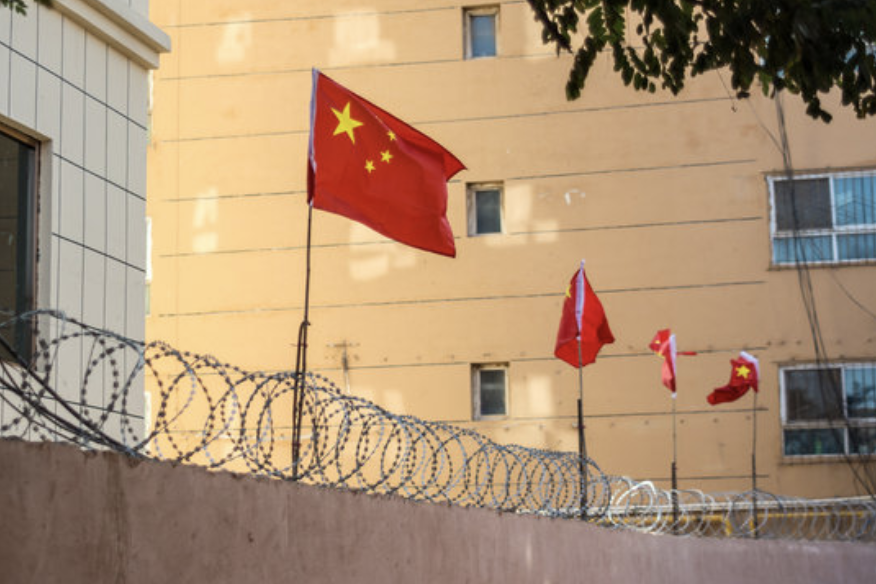
Who are the Uyghurs?
The Uyghurs are a Muslim minority, most of whom live in the Xinjiang region, in Western China. Culturally, the Uyghurs are closer to other Central Asian peoples, their language being a Turkic one. While Xinjiang is designated an autonomous region, in reality, China ensures that no separatist movements are able to arise and develop in the area. Apart from being a vast territory, Xinjiang also has plenty of natural resources and a past history of independence, which has made the region and its people the target of intense state surveillance. An increasingly violent separatist movement has provoked widespread repression and the portrayal of the Uyghur culture as a danger to the stability of China. Over the years, the tensions between the Uyghurs and the Chinese state have led to violence and loss of life on both sides. This history and rhetoric has enabled the Chinese to pursue an increasingly oppressive approach towards the Uyghur minority; with attempts to subjugate the Uyghur culture and identity by the Chinese state. For example, a BBC article from 2014 talks about Muslim students not being allowed to fast during Ramadan and being forced to eat alongside professors, as part of a state crackdown against Islam in universities.
What is happening to them?
Unfortunately, since 2014, the situation of the Uyghurs has degraded drastically. Between 2015 to 2018, China has built multiple internment camps, that it calls ‘re-education centres’, detaining more than a million Uyghurs. These facilities are allegedly to de-radicalize Uyghurs with ‘extremist thoughts’ or separatist sympathies; however, evidence suggests that they are nothing more than concentration camps where Uyghurs are forced to renounce their culture and identity and, essentially, ‘become Chinese’. While in the beginning there were cases of people leaving these camps, nowadays there are few instances of people who return from these ‘re-education centres’. Uyghurs have been sent to these camps for as little as contacting their relatives abroad or for using apps such as WhatsApp, instead of Chinese apps. There is a clear attempt by the Chinese state to ensure that Uyghurs do not receive support from outside of the country.
Is it genocide?
Political actors have been reluctant to denounce the Chinese practices against the Uyghurs as outright genocide. This is partially due to the fact that they are aware of the implications of such a statement and partially because there are plenty of ambiguities left in the official definition of ‘genocide’ offered by the UN Genocide Convention, that allows for loopholes. The UN Genocide Convention states that:
In the present Convention, genocide means any of the following acts committed with intent to destroy, in whole or in part, a national, ethnical, racial or religious group, as such:
(a) Killing members of the group;
(b) Causing serious bodily or mental harm to members of the group;
(c) Deliberately inflicting on the group conditions of life calculated to bring about its physical destruction in whole or in part;
(d) Imposing measures intended to prevent births within the group;
(e) Forcibly transferring children of the group to another group.
Recent Chinese measures directed against Uyghur women and children might force the international community to take a harsher stance against the Chinese government. There is evidence of Uyghur women being forcefully sterilized after they have a certain number of children, which has caused the population growth in Xinjiang to fall by 84%. Moreover, it is also believed that China is trying to pursue a campaign of separating children from their Uyghur families, to stop them growing up influenced by Uyghur culture, language and traditions. This usually takes place when both of a child’s parents are absent, either because of imprisonment or because of being taken to one of the ‘re-education centers’. There is also evidence that Uyghurs are being subjected to forced organ harvesting, which we explored in a previous article. This organ harvesting, the widespread arbitrary detention, the sterilization measures taken against Uyghur women, and the practice of separating Uyghur children from their families all point to a severe violation of human rights and make it clear that, by the standards of the Convention, the Uyghurs are faced with genocide. The international community must act before it is too late.



Average Rating